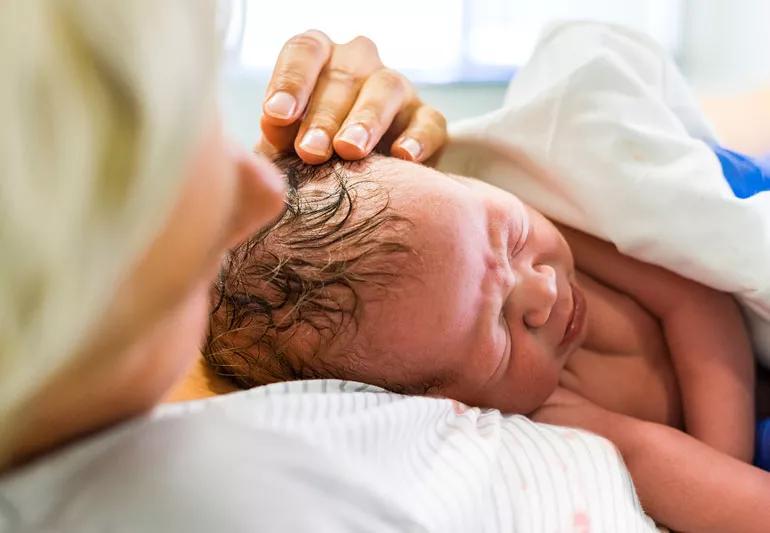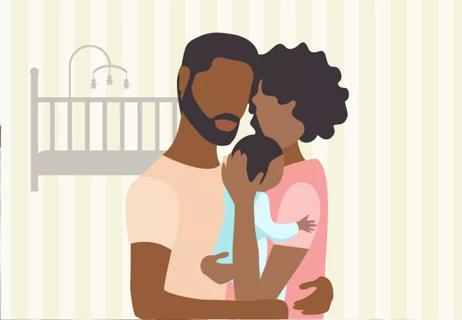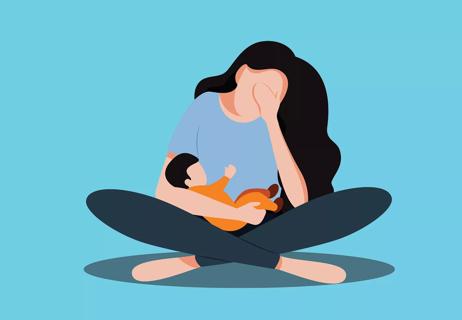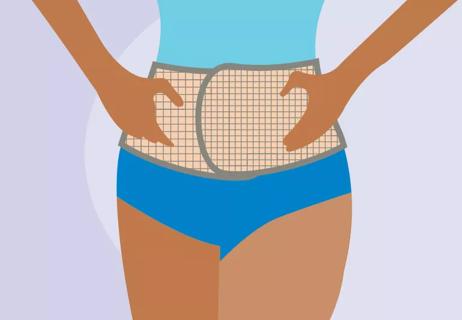Don't sweat it — it's fairly common

Doctors, midwives and childbirth classes help prepare you for just about anything that can happen during labor and delivery.
Advertisement
Cleveland Clinic is a non-profit academic medical center. Advertising on our site helps support our mission. We do not endorse non-Cleveland Clinic products or services. Policy
But afterward? Some postpartum discomforts might take you by surprise.
For example, if you’re about to try to sneak in a nap but suddenly your teeth start to chatter and you’re racked with uncontrollable shivers, don’t freak out! Ob/Gyn Rebecca Russell, MD, says many women aren’t aware this may happen shortly after delivery, but it’s normal.
Here she explains what you need to know about postpartum chills.
The cause of postpartum chills isn’t fully understood, but it may relate to fluid or heat loss and hormonal changes in your body after you give birth, Dr. Russell says.
It doesn’t matter whether you had a caesarean section or a vaginal birth. And while it usually happens within a couple hours after you’ve had your baby, it can also occur toward the end of labor.
You can also get postpartum chills even if the room you’re in is perfectly warm.
“You’ll usually be given extra blankets at the hospital to wrap up in,” Dr. Russell says. “The most important thing is not to try and control the shivering.”
That’s especially true if you’ve had a C-section. Straining to stop the shivers can cause your incision to tear. Just try to relax as much as possible and ride it out.
“It’s not pleasant, but it does pass,” she says. “It’s rare for it to last longer than an hour after delivery.”
Advertisement
Dr. Russell describes the feeling of postpartum chills as shivering, not really chills.
If you feel chills similar to those you have with the flu (an ache that you can almost feel in your bones), you may have a fever, and that could indicate an infection.
But if your teeth are chattering and you feel like you just stepped outdoors into sub-zero weather without a coat, that’s usually a sign of postpartum chills.
Either way, you should let your doctor or a nurse know so they can make sure you don’t have a fever.
Even with the best-laid birth plans, the unexpected can occur, Dr. Russell says.
“Most women haven’t heard about postpartum chills, so knowing it’s a possibility gives them one less thing to worry about if it does happen,” she says.
Just remember that they don’t last long. And they don’t mean there’s anything wrong with you or your baby.
And, speaking of that new baby, there’s no guarantee you’ll get that nap in.
Advertisement
Learn more about our editorial process.
Advertisement

Having sex after giving birth isn’t only about being medically ready

It’s normal to experience some changes

Belly wraps provide physical support after you give birth

Bleeding is a risk and warrants taking care, but the reward of this lifesaving medication is great

Severe and debilitating headaches can affect the quality of your child’s life

Type 2 diabetes isn’t inevitable with these dietary changes

Applying a hot or cold compress can help with pain